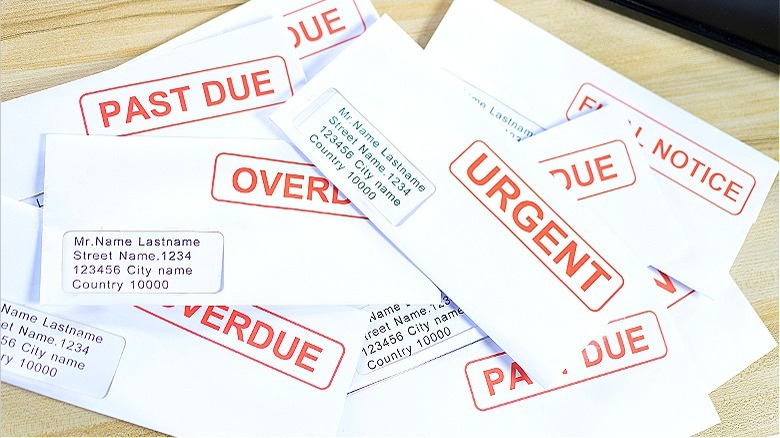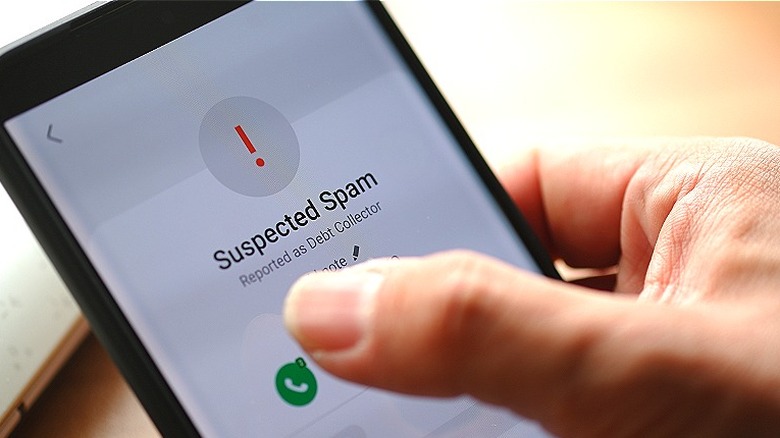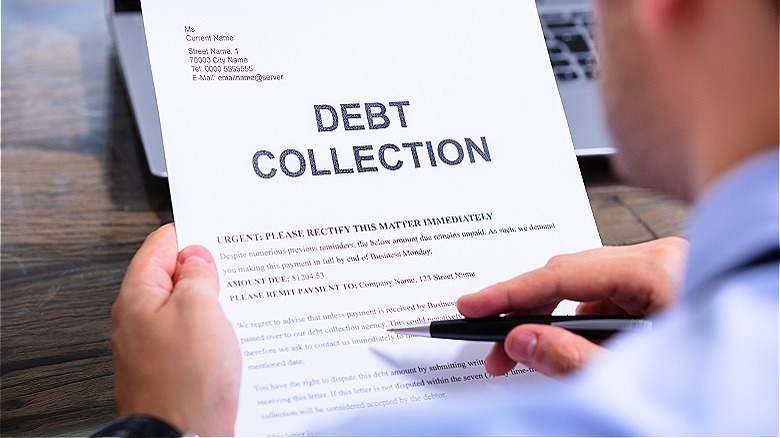Why You Should Be Concerned About Zombie Debt
Paying off your debt can be a huge financial, as well as emotional, relief. Whether you're dealing with some of America's current $1.079 trillion in credit card debt, or finally paying off a personal loan, it's a huge accomplishment to get out from under the weight of loans and debt. Seeing your debt fall off your credit report (which, for paid-off debt, generally happens after 10 years) can be an especially rewarding and relieving experience. With that in mind, it can come as quite a shock sometime in the future to find yourself faced with collectors attempting to revive your old debt.
Zombie debt, aka phantom debt, is old debt that has come back due, in part, to your information having been sold to a new collector. Whether through intentionally attempting to deceive you or a breakdown in personal debt information due to re-sale, these debt collectors will attempt to get consumers to pay for debts they aren't legally tied to anymore (or, potentially, never were). Since debt collectors don't exactly have the best reputation for honesty and forthright business practices, making sure you understand the debt in question is the key to ensuring you don't get tricked into paying for something you don't have to.
If you're someone with any past unpaid debts that have passed the statute of limitations for collection, it can be especially important to verify the debt. If you suspect a zombie debt situation you should make sure to look for any documents you might have regarding past debts before deciding how to proceed.
What exactly is zombie debt?
Zombie debt is an old debt that a collector revives. This debt can be an amount you paid off already, debt that has expired, or even debt you never owed at all. Generally, these debts have fallen off your credit report but it's important to realize that some zombie debt might not even be yours. Despite the fact you're not financially liable for zombie debt, collectors can (and will) attempt to contact you to elicit payment for this old debt.
If you're wondering how exactly debt collectors even find your old debts, you might be surprised to learn that creditors regularly remove old debt by selling it. While creditors generally only make cents on the dollar for the old debt in question, they can still make money by selling your debt information to different collectors. Unfortunately, the process of selling and even re-selling old debts can lead to a breakdown of the specific information attached to your old debt (like, for instance, if it's already been paid off or not).
This can lead collectors to reach out about paying for a debt that is already paid off. Similarly, this can also cause collectors to reach out about debt that might actually belong to someone else entirely. In fact, according to the Consumer Finance Protection Bureau 2022 Annual Report summarizing the CFPB's yearly activities to administer the Fair Debt Collection Practices Act, 56% of its complaints concerned collectors attempting to collect debt from consumers that wasn't actually owed by the consumer being contacted.
Typical sources of zombie debt
Most zombie debt comes from a person's debt history. These debts can already be settled, debts that were wiped out in bankruptcy, debts that are past the statute of limitations, or even debts you forgot about entirely. This is why it's important to get as much information as possible before paying any suspected zombie debt. It's also important to keep any written proof you might have received from lenders at the conclusion of your settled debts. This paperwork can be key in verifying the legitimacy of any zombie debt collection.
If you have unpaid debt, it's important to check how long the statute of limitations is on your past debt. Even though the debt is still technically valid, you're no longer legally obligated to pay it. In most states, the limit is between three and six years but some states have even longer limits (like Kentucky) so it's important to know just when your legal responsibility ends. While much zombie debt is a fraudulent attempt to collect on nonexistent debt, some zombie debt can actually be the result of fraudulent charges due to identity theft or even simple computer errors. In these instances, you'll need to pursue a larger credit overhaul to discover the source of the theft or error. This is also why it's so important to regularly check your credit score and report to ensure you don't miss any suspicious charges or new lines of credit.
Zombie debt collector tactics
Debt scavengers ultimately earn a profit by tricking people into paying for zombie debts. Even if they only collect a portion of the original debt amount, when you consider that the debts in question are already concluded, any money they earn is through blatantly deceptive means. Making a profit is ultimately these collector's main motivation so they are highly incentivized to force your hand. It's important to realize that making a payment on a zombie debt that has already passed its statute of limitations for collection will immediately revive the debt and reset that statute's time clock. This means that you are now liable for the entire debt amount, and the debt collectors can earn the full amount of debt back from you despite buying the debt for practically nothing.
Despite collectors technically being beholden to the Fair Debt Collection Practices Act (FDCPA), their tactics can still be extremely manipulative. Since their main goal is to trick consumers into making a payment, collectors will often use deceptive means to convince consumers to make even the smallest payments on a zombie debt. Debt collectors are legally allowed to call your work and your family in pursuit of their debt collection. This means they can attempt to shame and manipulate you into paying in order to make their phone calls to people like your spouse stop. Keep in mind collectors are also now allowed to text and email you in addition to using social media in order to reach you.
What to do if a collector contacts you
As said, the most important thing to remember if you're contacted by a collector about a debt that isn't clear to you is to not pay anything (or promise to pay anything) until you have confirmation about the debt in question. The act of paying can serve to revive old debts by resetting the clock on any statute of limitations that might've existed on the debt in question. This can make you liable to pay off the entire amount so always ask for clarification before agreeing to any payments — even small ones.
The best course of action is to request their mailing address in order to send a certified letter (for your records) disputing the debt claim and asking them to provide proof (a debt verification letter) of your debt. Make sure this letter is sent within 30 days of when you were initially contacted or the collector can assume the debt is valid.
Also, it's important to remember you're protected from harassment under the Fair Debt Collection Practices Act, so while debt collectors can use intrusive and annoying tactics, they can't harass or threaten you. If a collector continues to contact you after you've sent your letter of dispute, you can legally write them back informing them they're not allowed to contact you unless by writing (or if they choose to sue you). If a collector is breaking the rules laid out in the FDCPA, make sure to report them for inappropriate behavior.
Ways to combat zombie debt
It's important to research the time limit on debt in your state. Since you cannot legally be sued for any preexisting debt that's past the statute of limitations, being armed with the right knowledge can make all the difference in combatting zombie debt.
Since vulture debt collectors will still try, it's important to know how to handle them. For starters, realizing what specific debt they're pursuing is important in determining how you should handle the debt pursuit. If you find you've already paid off and settled the debt in question, write a letter to the collection agency demanding that, under the requirements of the FDCPA, they cease all contact. If you find the debt in question is either not your debt at all or is invalid or false debt, send a certified letter challenging and disputing the debt within 30 days of their initial contact regarding the debt.
If you discover you do, in fact, owe the debt, then you should discuss payment options (and even negotiate a potentially lower repayment amount) with the collection agency in a timely fashion. Getting the debt off your plate as soon as possible can help prevent any interest, late fees, or other unintended consequences of working with the collection agency. Obviously, those who are unable to pay for the valid debt in question will need to pursue credit counseling and potentially financial advisers regarding bankruptcy options, depending on the level of debt in question.





